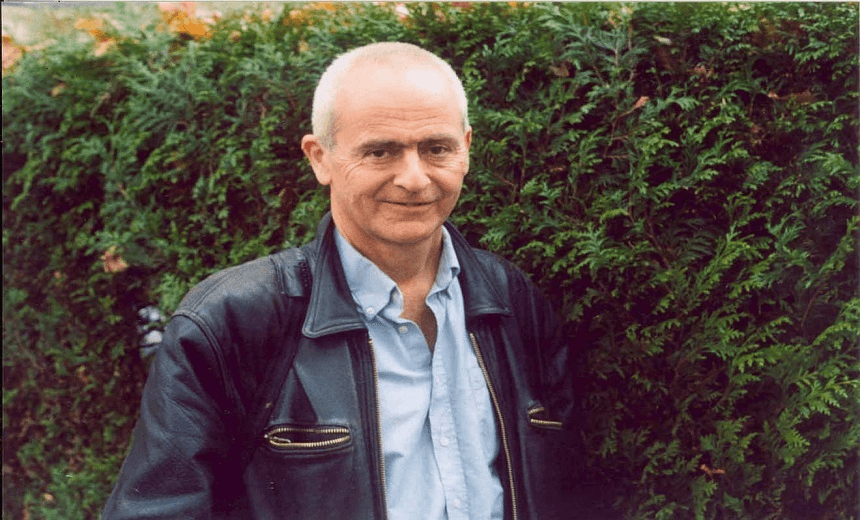Guardian journalist Nick Davies’s 2015: a massacre in a platinum mine in South Africa, questions in a mud hut, ‘strange experiences’, identity theft kind of thing, ‘so help me God’, six continents, tears, human goodness.
There was one single day in March which pulled together the big theme of my whole year.
I was in South Africa, researching the story of a man who had become the leader of a wildcat strike at a platinum mine near Johannesburg and who, for his efforts, had been shot dead by police along with 33 others. Black men, dead in the dust – killed not by white officers as in the old days but by other black men in uniform. Something terribly wrong with the post-apartheid revolution.
In search of this man’s history, I had flown to the Eastern Cape, with a brilliant lawyer, Jim Nichol, who was acting for the families of the dead strikers; and a translator, Khuselwa Dyantyi, who knew many of those involved, dead and alive. The three of us ended up in a village whose lifestyle had scarcely changed in a thousand years – no electricity, no fresh water, no sanitation. And as we sat on three white plastic chairs in a round hut, whose walls were made of mud, asking questions of the villagers who sat around us, I briefly pulled back mentally and looked at myself in this deeply foreign place and I thought: ‘This is what life is for – for strange experiences.’
As night fell, the three of us left the village in our hire car and drove to the near-by town. For a few minutes, we stopped at a little supermarket and then drove on to a dusty motel, and we parked and went round to the back of the car and opened the boot, and the three of us stood there absolutely still and absolutely silent for three or four very long seconds, staring into the back of our vehicle, until Jim said: ‘They’ve stolen everything.’
We were in trouble. In stealing all our bags in the supermarket carpark, somebody had stolen our computers, phones, credit cards, passports, clothes. Not my notebooks, for which I was grateful: they had been lying on the seat. But everything else apart from one credit card in my trouser pocket. And the point here is that this turned out to be the beginning of the best part of my time in South Africa.
We walked dazed and empty-handed into the motel. The staff were deeply embarrassed that this would happen to visitors and let us use their phones for free to call the UK to cancel credit cards and phones. We went to the police and found half-a-dozen officers with their feet on the desks sucking lollipops and ignoring us. With one exception. The kindest policeman in sub-Saharan Africa stepped forward and, with great care, he filled-out in long hand a detailed statement describing the crime and ending with a rhetorical flourish in my name: ‘I do not believe that anybody has the right to take my possessions without my consent, so help me God’ signed, Nick Davies.
Two days later, the British consulate in Pretoria gave me a travel document to get back to the UK. Good. But not good enough. I needed to go from London to Los Angeles for the wedding of my daughter, planned for 18 months, with me to give her away, to make the speech. I’d need a whole new passport. Easy if you have lost one, but not if it’s been stolen: that involves a week of security checks. And I only had four days.
I was frantic, up late at night in my hotel room in Johannesburg, calling the passport office in London, pleading for help; calling friends in the UK, looking for advice. No good. No passport in four days. You can’t go to your own daughter’s wedding.
At about midnight, I called the direct line of a helpful guy in the British consulate and started to leave a message. An odd thing happened. Simply, I started to cry. Not the whole Niagra – but my throat choked, my voice broke. And this had a most dramatic effect. The guy in the consulate was evidently moved by this desperate father and called London, spoke to somebody senior who simply slashed away all the red tape. A day later, I flew into Heathrow, went to the passport office, where the manager herself was waiting with the forms which she had filled in for me, and a couple of hours later, I had a new passport. And so I saw my daughter married.
The point is, that when you travel, strange things happen. In search of strangeness, I travelled this year through six different continents. What happened was not always pleasant. It is the strangeness which is important and the human connections which then emerge, with African villagers or cops or bureaucrats. I reckon that’s what makes life worth living.
Hack Attack and Flat Earth News, the two essential books by Nick Davies on journalism and some of its manifold evils, are almost certainly still in stock at Unity Books.

